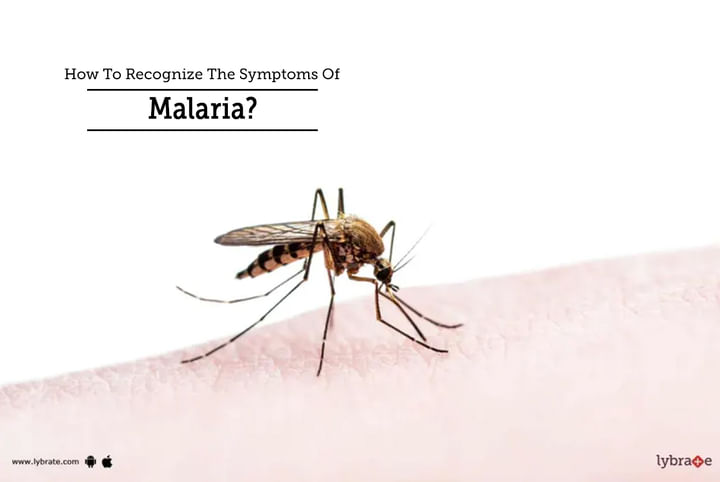How To Recognize The Symptoms Of Malaria?
Malaria is a potentially life-threatening disease, typically spread by the infected female Anopheles mosquito. When the infected mosquito carrying a parasite, Plasmodium, bites a healthy person, the parasite is released into the bloodstream causing malaria.
Malaria is non-contagious. This means that one cannot contract the disease through physical contact with an infected person. The parasite causing malaria is not present in the saliva of the infected person, and so, is not passed on from one individual to another. However, the disease is transmitted through blood, which means you could get it through an organ transplant or blood transfusions. Malaria can also spread by shared syringes or needles.
What are the symptoms of malaria?
In the initial stage, the symptoms of malaria are the same as those of other infections caused by parasites, viruses or bacteria. Sometimes, the symptoms may be mistaken for those of flu, the most common one being high fever. Other symptoms of the disease may include –
-
Severe headache
-
Shiver and chills
-
Excessive sweating
-
Cough
-
Pain in the chest or abdomen
-
Vomiting and nausea
-
Fatigue or tiredness
-
Body aches
-
Muscle cramps
-
Diarrhoea
-
Anaemia
-
Convulsions
-
Bloody stool
Some people may experience mild or no symptoms after being infected by the malaria parasite. However, the severity of malaria symptoms may vary depending on the person’s age, overall health, and the type of parasite that has caused the infection.
In rare cases, malaria may even lead to loss of consciousness, seizures, or impaired function of the spinal cord or brain. The most severe forms of malaria infection can be fatal.
When do the symptoms appear?
Malaria symptoms typically show up within 10 days to 4 weeks after contracting the infection. However, sometimes the symptoms may not appear for several months. Certain malaria parasites can enter the body and remain dormant for a longer period.
The incubation period may also be longer if you are taking certain medications to prevent infection. If a person is resistant to previous infections, he/she may have less severe or no symptoms at all.
Symptoms of malaria may appear in cycles. The period between episodes of fever and other symptoms varies with the particular parasite infection the patient has.
When should you see a doctor?
You should make an appointment with your doctor upon experiencing high fever, especially while travelling to or residing in a region where the risk of malaria is high. The parasites causing malaria can lie dormant in the body for up to a year. If you experience severe symptoms, ask for medical assistance immediately. Blood tests and screening tests can help diagnose the disease. Proper medications and drugs can help treat malaria effectively.



+1.svg)
